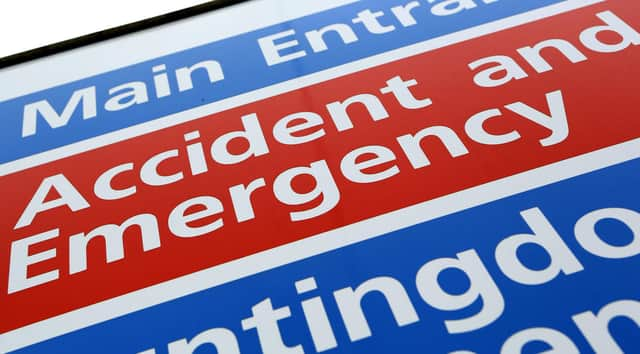Drop in visits to A&E at Epsom and St Helier University Hospitals Trust last month


Fewer patients visited A&E at Epsom and St Helier University Hospitals Trust last month – but attendances were higher than over the same period last year, figures reveal.
NHS England figures show 14,765 patients visited A&E at Epsom and St Helier University Hospitals NHS Trust in October.
Advertisement
Hide AdAdvertisement
Hide AdThat was a drop of 2% on the 15,100 visits recorded during September, but 37% more than the 10,779 patients seen in October 2020.
The figures show attendances were above the levels seen before the coronavirus pandemic – in October 2019, there were 14,658 visits to A&E at Epsom and St Helier University Hospitals Trust.
The majority of attendances last month were via major A&E departments – those with full resuscitation equipment and 24-hour consultant-led care – while 1% were via minor injury units.
Meanwhile, around 2% were via consultant-led departments with single specialties, such as eye conditions or dental problems.
Advertisement
Hide AdAdvertisement
Hide AdAcross England, A&E departments received 2.2 million visits last month.
That was an increase of 2% compared to September, and 36% more than the 1.6 million seen during October 2020.
At Epsom and St Helier University Hospitals NHS Trust:
In October:
There were 1,084 booked appointments, down from 1,112 in September
80% of arrivals were seen within four hours, against an NHS target of 95%
Advertisement
Hide AdAdvertisement
Hide Ad721 patients waited longer than four hours for treatment following a decision to admit
Of those, 40 were delayed by more than 12 hours
Separate NHS Digital data reveals that in September:
The median time to treatment was 140 minutes